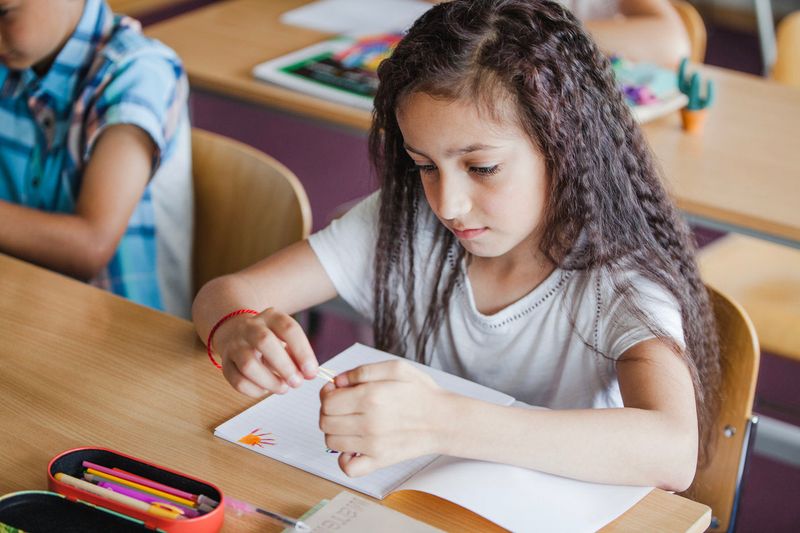Introduction

As parents, we want the best for our children, but sometimes our high expectations can backfire. The line between healthy encouragement and harmful pressure isn’t always obvious. Kids rarely announce they’re feeling overwhelmed – instead, they show it through subtle changes in behavior and attitude. Recognizing these warning signs early can help you adjust your approach before lasting damage occurs.
1. Paralyzing Perfectionism Takes Over

Your once carefree child now erases and rewrites homework until the paper tears. They spend hours on simple tasks, afraid of making even tiny mistakes. This perfectionism isn’t healthy ambition – it’s fear. Children under excessive pressure often develop an all-or-nothing mindset. They believe anything less than perfect equals failure. Watch for meltdowns over minor errors or reluctance to show you work-in-progress. This perfectionism extends beyond academics too. Art projects abandoned because “they don’t look right” or refusing to participate in games they haven’t mastered are telltale signs your child feels their worth depends on flawless performance.
2. Self-Criticism Becomes Their Inner Voice

“I’m so stupid.” “I can’t do anything right.” When these harsh words become your child’s automatic response to challenges, it signals internalized pressure. Their inner critic has grown too powerful. Kids naturally mirror the standards set for them. If you frequently point out mistakes or focus primarily on results rather than effort, they adopt this critical lens. Soon they’re judging themselves more harshly than any teacher or coach ever would. Pay attention to negative self-talk during homework time or after receiving grades. These aren’t just momentary frustrations but glimpses into how your child has learned to view themselves – as perpetually falling short.
3. Praise Addiction Develops Quietly

Remember when your child used to play freely, lost in imagination? Now they constantly interrupt with “Mom, look!” or “Dad, is this good?” This constant seeking of approval reveals a child who’s become dependent on external validation. Kids under too much pressure start measuring their worth through others’ reactions. They become praise-seekers rather than self-motivated learners. Their genuine curiosity gets replaced by people-pleasing behaviors. Notice if your child seems deflated without explicit praise or repeatedly asks if you’re proud of them. These behaviors suggest they’ve connected your approval with their value – a dangerous equation that undermines their intrinsic motivation and self-confidence.
4. New Challenges Spark Fear Instead of Excitement

“I don’t want to try out for the team.” “Can I quit piano?” When a previously enthusiastic child starts avoiding new experiences, pressure might be the hidden culprit. Risk-taking becomes terrifying when failure feels catastrophic. Children experiencing excessive pressure develop a fixed mindset. They believe abilities are set in stone rather than developed through practice. The thought process becomes: “If I’m not immediately good at something, I must not have the talent for it.” Watch for excuses to avoid unfamiliar activities or quitting at the first sign of difficulty. These behaviors signal your child has come to fear judgment more than they value growth – a direct consequence of feeling that meeting expectations matters more than the journey.
5. Physical Symptoms Surface Without Explanation

“My stomach hurts.” “I have a headache.” When these complaints consistently appear before tests, recitals, or sports games, your child’s body might be telling you what their words cannot. Stress has physical consequences. Children often lack the emotional vocabulary to express feeling overwhelmed. Instead, their anxiety manifests physically – through stomachaches, headaches, sleep disturbances, or even regressive behaviors like bed-wetting in younger kids. Track when these symptoms occur. If they mysteriously disappear on weekends or holidays only to return during high-pressure periods, your child’s body is sending an important message: the expectations they’re facing feel unmanageable, even if they never say so directly.
6. Passion Fades From Once-Loved Activities

The piano that once drew your child like a magnet now sits untouched. The soccer ball gathers dust. When activities transform from joys into obligations, it signals pressure has stolen the fun. Children naturally gravitate toward what brings them pleasure. When achievement expectations overshadow enjoyment, their intrinsic motivation withers. The question shifts from “Do I enjoy this?” to “Am I good enough at this?” Listen for sighs before practice time or reluctance where enthusiasm once lived. These subtle shifts reveal your child no longer finds fulfillment in activities themselves but sees them merely as performance venues where they must prove their worth – a heavy burden that eventually extinguishes passion.

Comments
Loading…